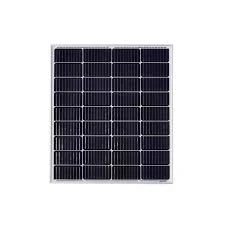Exploring the Benefits of Hybrid Solar Inverters for Efficient Energy Management
Understanding Hybrid Solar Inverters The Future of Solar Energy
As the world shifts towards more sustainable energy solutions, hybrid solar inverters have emerged as a pivotal technology in harnessing solar power. These innovative devices combine the functionalities of traditional solar inverters with energy storage systems, allowing users to maximize their solar energy production and utilization.
What is a Hybrid Solar Inverter?
A hybrid solar inverter is a sophisticated device that integrates several energy sources, including solar panels, batteries, and the grid, into a unified system
. Essentially, it is designed to convert the direct current (DC) generated by solar panels into alternating current (AC) for household use while also managing battery storage and grid interactions. This flexibility allows homeowners and businesses to generate, store, and use solar energy more efficiently.How Does it Work?
The process begins with solar panels converting sunlight into DC electricity. The hybrid inverter then takes this electricity and converts it into AC power, which is suitable for running household appliances. Any excess energy produced can be directed towards charging an energy storage system, typically composed of lithium-ion batteries. When solar energy generation is low, particularly at night or during cloudy weather, stored energy can be utilized, ensuring a continuous power supply.
Moreover, hybrid inverters have the capability to interact with the grid. This means that if the solar production exceeds the needs of the household and the batteries are fully charged, the surplus energy can be fed back into the grid. Conversely, during periods of high energy demand or low solar production, users can draw power from the grid. This seamless integration provides stability and reliability, essential components for modern energy consumption.
Benefits of Hybrid Solar Inverters
hybrid solar inverter

1. Energy Independence By storing energy, users can significantly reduce their dependence on the grid. In regions prone to power outages, having a hybrid inverter can provide peace of mind and self-sufficiency.
2. Cost Efficiency With the ability to store excess energy, users can take advantage of lower electricity tariffs during off-peak hours and avoid higher rates during peak demand times. This leads to significant savings on electricity bills.
3. Sustainability Hybrid solar inverters promote the use of renewable energy, thereby reducing carbon footprints. This transition aligns with global efforts to combat climate change and protect the environment.
4. Smart Technology Integration Many hybrid inverters come equipped with smart technology, allowing users to monitor their energy production and consumption through apps. This feature enables better energy management and can help in optimizing energy usage patterns.
5. Flexibility As energy needs grow, hybrid solar inverter systems can easily be expanded. Whether through additional solar panels or more extensive battery storage, these systems are adaptable to changing consumer demands.
Conclusion
Hybrid solar inverters represent a significant advancement in solar energy technology, providing users with the capability to generate, store, and utilize renewable energy effectively. As the technology continues to evolve, hybrid inverters will play an increasingly important role in residential and commercial energy systems. They not only offer economic benefits and energy independence but also contribute to a more sustainable and environmentally friendly future. Investing in hybrid solar inverters is not just a smart economic decision; it is a step towards a cleaner, greener planet for generations to come.
-
String Solar Inverter: The High-Efficiency Solution for Smart Solar EnergyNewsJul.14,2025
-
Revolutionizing Rooftop Energy with the Power of the Micro Solar InverterNewsJul.14,2025
-
Power Independence with Smart Off Grid Solar Inverter SolutionsNewsJul.14,2025
-
On Grid Solar Inverter: Powering the Future with Smart Grid IntegrationNewsJul.14,2025
-
Monocrystalline Solar Panels: High-Efficiency Power for the Future of Clean EnergyNewsJul.14,2025
-
Bifacial Solar Panel: A Smarter Investment for Next-Generation Energy SystemsNewsJul.14,2025







